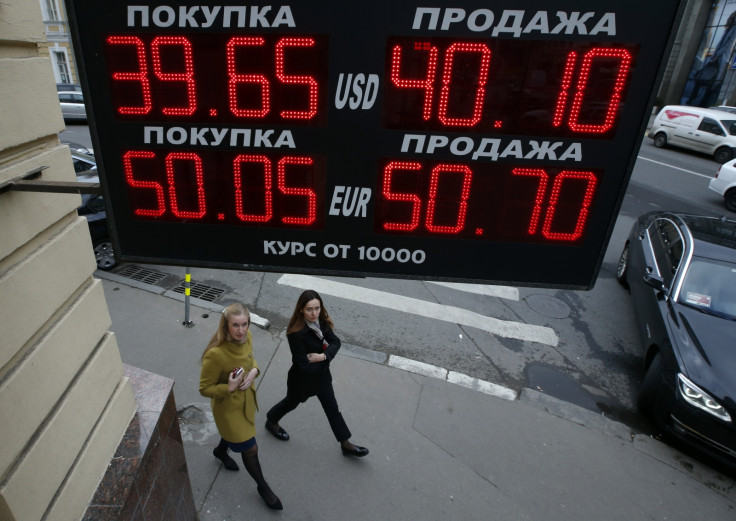Rouble Plummets Again as Central Bank Moves Towards Free-Floating Currency

The news that the Bank of Russia is to reduce its support for the rouble in a move towards a floating exchange rate has seen the currency plunge to yet another all-time low against the US dollar.
The rouble lost 2.56% of its value on the news that the central bank has capped its foreign currency purchases at $350m, abandoning its interventionist policy which it had hoped would prop the flailing rouble up.
Over the past weeks, the bank had stepped up its efforts to bolster the currency, which lost almost 25% of its value since June on falling oil prices and economic, financial and trade sanctions. It had been selling up to $2.5bn in foreign currency on the domestic market in an effort to boost the value of the rouble.
Analysts have said that the currency will likely weaken further still over the coming days, but that the move towards a free-floating rouble will "limit the risk that the sharp falls in the rouble develop into a self-fulfilling currency crisis".
In a note this morning, Neil Shearing, the chief emerging market economist at Capital Economics, wrote: "This appears to be tantamount to a move towards a fully floating rouble... This should help to limit the risk that the plunge in the rouble over the past month develops into a self-fulfilling currency crisis. As we've noted before, one of the factors behind the sharp drop in the rouble has been speculation that it would weaken once the CBR moved to a full float, which was originally planned for January. Today's move helps to mitigate this threat."
On 31 October, the bank had increased the interest rate to 9.5% in an effort to halt the rouble's slide and to curb inflation, which has escalated sharply in response to the restriction of imports from the EU and US entering the Russian market.
Analysts had, at the time, speculated that it would not be enough. Timothy Ash, an analyst at Standard Bank, had suggested in a note that measures taken will mean more short-term pain for the Russian economy and will likely push it into recession.
He wrote: "Long-term it is unlikely to stop the rot, given the underlying drivers for ruble weakness which the rate hike does not help ... structural weaknesses in the economy, sanctions, strains in the relationship with the West, and lower oil prices."
Meanwhile, some Russian exporters are making hay while the rouble flounders. The steel giant Severstal has said that a weak currency, along with weak competition from overseas, has helped compensate for lower domestic steel demand.
The company – which is owned by oligarch Alexey Mordashov – said in its financial statement that it has returned to profit-margins not seen since pre-2008, partly because it sold its US plants, which were suffering on weak steel prices. It was previously getting one-third of its revenue from the US.
"The rouble weakening provides additional support for the Russian steelmakers' export competitiveness," said Russia's second-biggest steelmaker in a statement.
© Copyright IBTimes 2025. All rights reserved.






















